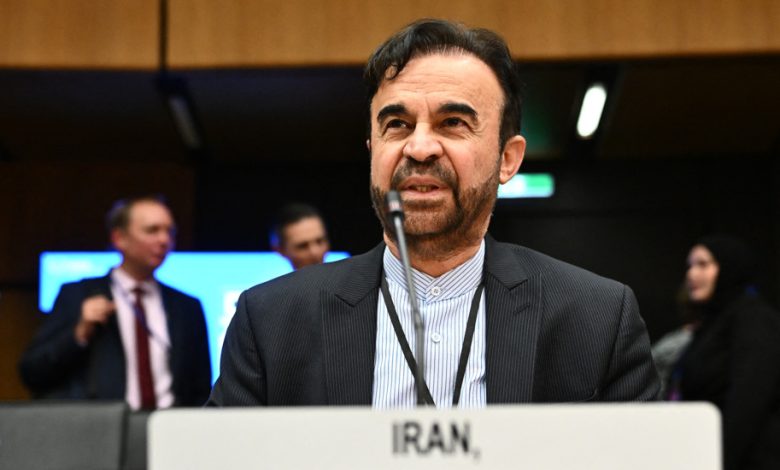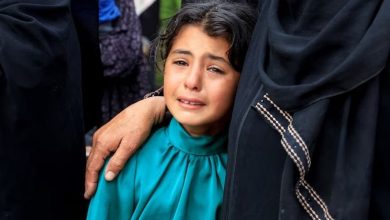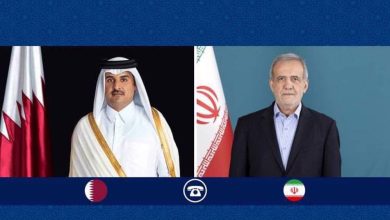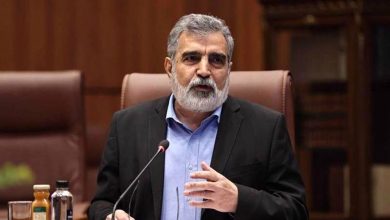Iran Asserts E3 Lacks Authority to Reimpose Sanctions
The Iranian envoy to the International Atomic Energy Agency asserted that European signatories to the JCPOA lack both the legal and moral authority to initiate the 2015 nuclear deal's snapback mechanism, citing their own non-compliance with the Joint Comprehensive Plan of Action.

During the Wednesday meeting of the International Atomic Energy Agency’s Board of Governors, Reza Najafi stated that Britain, Germany, and France, collectively known as the E3, have not fulfilled their commitments under the Joint Comprehensive Plan of Action (JCPOA) to remove sanctions against Iran. Consequently, according to Najafi, they are not in a position to activate the deal’s dispute resolution mechanism.
Najafi highlighted the E3’s failure to fulfill their commitment to lift sanctions that were scheduled for removal on the Transition Day of the JCPOA, which occurred on October 18, 2023.
Furthermore, European nations have intensified restrictions on Iran, flagrantly breaching the Joint Comprehensive Plan of Action (JCPOA) and United Nations Security Council Resolution 2231, which endorses the agreement, according to Najafi.
Under the dispute resolution mechanism, should any of the five permanent members of the United Nations Security Council determine that Tehran is breaching the Joint Comprehensive Plan of Action (JCPOA), all previously suspended UN sanctions against Iran will be reinstated.
The European signatories to the agreement have recently indicated the possibility of triggering the mechanism in light of what they describe as Iran’s non-compliance with its commitments under the JCPOA.
The 2015 nuclear agreement, designed to lift sanctions on Iran in exchange for verified limitations on its nuclear activities, was disrupted by the United States’ unilateral exit in 2018.
Iran has exercised patience for more than a year, anticipating that the three European signatories of the nuclear accord would compensate for the United States’ withdrawal, yet their efforts have yielded no tangible results.
The nation subsequently began to retract certain nuclear commitments outlined in the agreement, which permits both parties to respond in kind to any breaches of compliance.
Tehran asserts that it has remained within the boundaries of the agreement, maintaining that its scaled-back commitments are a legitimate reaction to the United States’ withdrawal from the pact.
**”Iran Signals Firm Retaliation”**
The Iranian envoy has issued a stern warning, indicating that any actions taken by the E3 nations or the United States against United Nations Security Council Resolution 2231, or the imposition of any new sanctions on Iran by the council, could lead to significant repercussions.
In this context, Iran’s potential actions are expected to be critical, as previously communicated to other parties involved in the JCPOA. The United States, along with the three European nations, will assume full responsibility, he asserted.
Najafi also commented on Iran’s indirect negotiations with the United States regarding its nuclear program, asserting that the nation has demonstrated a commitment to achieving a “fair, lasting, and effective” agreement.
He stated that the Islamic Republic of Iran asserts that a diplomatic resolution is attainable if its inalienable rights, such as domestic enrichment, are acknowledged and respected.
Iran and the United States are presently engaged in indirect negotiations aimed at establishing an alternative agreement to the 2015 nuclear deal.
The sixth round of negotiations is scheduled to take place on Sunday.







